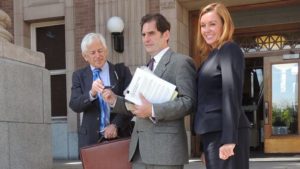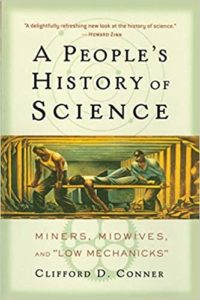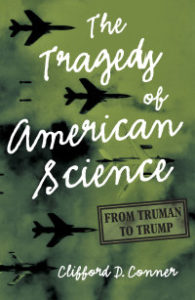Podcast: Play in new window | Download
Complaint Filed Against Judge Demanding Release of Attorney In Chevron Case
Last week dozens of legal organizations representing more than 500,000 lawyers along with more than 200 individual lawyers submitted a judicial complaint against Judge Lewis A. Kaplan in New York. The violations were directed at human rights lawyer Steven Donziger whose case we’ve been following on Law and Disorder. Donziger, listeners will recall, won a historic judgment against Chevron in Ecuador to clean up the pollution caused by decades of oil drilling with no environmental controls.
The complaint was filed by the National Lawyers Guild and the International Association of Democratic Lawyers (IADL). The Chief Judge of the Second Circuit Court of Appeals, Robert Katzmann, has a duty to read the complaint and determine if he will appoint a committee to investigate and issue findings.
The complaint documents is a pattern of ethics violations committed by Judge Kaplan, a former tobacco industry lawyer.
Kaplan denied Donziger a jury trial, put in place a series of unusual courtroom tactics, severely restricted Donziger’s ability to mount a defense, and detained him at home for more than one year on contempt charges that were rejected by the U.S. Attorney. Kaplan allowed Donziger to be prosecuted by a private law firm that has Chevron as a client. He imposed enormous fines on Donziger that have all but bankrupted him.
The complaint alleges that the “statements and actions of Judge Kaplan over the last ten years show him to have taken on the role of counsel for Chevron … rather than that of a judge adjudicating a live controversy before him.”
Despite accepting jurisdiction in Ecuador, Chevron came back to the US and filed a civil “racketeering” case against the Donziger and all 47 named plaintiffs. They potentially sought $60 billion in damages — the highest personal liability in US history. Judge Kaplan denied Donziger a jury and let Chevron pay a witness at least $2 million while moving him and his entire family from Ecuador to the US. Chevron lawyers coached the witness, Alberto Guerra, for 53 days before Kaplan let him testify against Donziger; Guerra later admitted under oath that he had lied on the stand. Kaplan also refused to let Donziger testify on direct examination.
Twenty-nine Nobel laureates and several human rights organizations have criticized the harassment of Donziger by judicial authorities and have demanded his immediate release.
Guest – Lauren Regan, a member of Steven Donziger’s defense team. She is also executive director of the Civil Liberties Defense Center and a member of the National Lawyers Guild.
—-
The Tragedy of American Science: From Truman To Trump
Science came out of the enlightenment. Research then was unbiased and done in the interest of the public. This is no longer the case with the militarization of science and it’s corporatization.
In our times biased research has been conducted to show that tobacco doesn’t cause cancer, that chemicals and pesticides used in agriculture do no harm, that opioids will not kill thousands, and that there is no such thing as human caused climate change.
Science and technology has been chained to the military where trillions of dollars have been spent in the effort to more effectively kill people.
The US economy’s addiction to military spending distorts and deformed science by making it overwhelmingly subservient to military interests. This has transformed science from the classic idea of a creative force for the advancement of humankind into its destructive and anti-human opposite. That trillions of dollars in resources and scientific talent are not devoted to solving the problems of poverty, disease, and environmental destruction is one of the greatest tragedies of our times.
Guest – Dr. Clifford D Conner is a historian and he teaches the history of science at the School of Professional Studies, CUNY Graduate Center. He is the author of A People’s History of Science: Miners, Midwives, and Low Mechanicks and biographies of three revolutionaries: John Palmer Road, Arthur O’Connor, and Colonel Edward Marcus Despard.
—————————————-
—————————————-




